George Washington is respected and revered by his Countrymen as an example of what a President should do. To me President Washington followed the example of Lucius Quinctius Cincinnatus who retired to private life after his public service and eschewed the fame and power that many of his contemporary's seeked and he turned down due to his belief that Leaders should serve their country or nation, not have their nation serve them. Cincinnatus was recalled back into public service after a crisis and invasion. They had to pull him off his plow and make him a General again.
George Washington being Sworn in as First President of the United States
Henry “Light Horse” Harry Lee famously eulogized George Washington as,
“First in war, first in peace, and first in the hearts of his
countrymen.” As Commander-in-Chief of the Continental Army during the
Revolutionary War, president of the Constitutional Convention, and the
First President of the United States, Washington dedicated the prime of
his life to serving America and he rightfully holds the informal title,
“Father of His Country.”
Guided by his devotion to duty, unbreakable conviction, faith, sense of
responsibility, and his commitment to leading by example, Washington
lived a life of honor that every American should strive to learn from.
1. Duty to Country Always Comes First
Mount Vernon was not just the place George Washington
called home. For the Virginia farmer, landowner, and businessman, it was
also his paradise. Washington was happiest when managing the
responsibilities of his vast plantation, but when duty called, he always
answered.
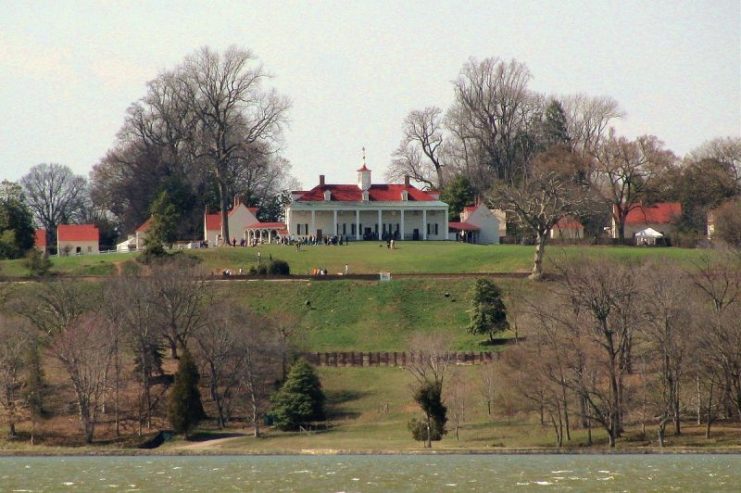
In June 1775, the Second Continental Congress formally
established a standing army and appointed George Washington as the
Commander-in-Chief. After taking command, Washington did not return to
Mount Vernon until the war brought him back to Virginia in autumn 1781,
giving him the chance to visit his beloved home for the first time in
six years and four months.
Washington was rarely away from his men during the
conflict and faithfully led the Continental Army for eight years until
victory was finally achieved in 1783.
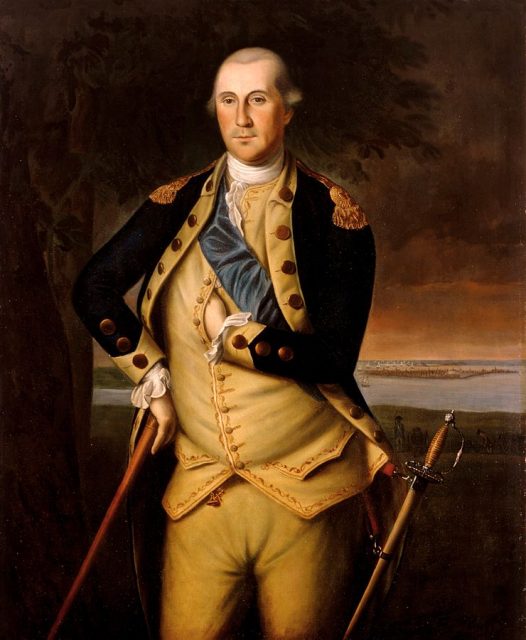
Having done everything in his power to secure American
independence, Washington decided to retire “from all public
employments” after the war. He found true peace back at Mount Vernon and
was happy to “move gently down the stream of life until I sleep with my
fathers.” Washington’s joyful retirement was interrupted in 1787 when
his country called on him again.
The dutiful patriot traveled to Philadelphia,
Pennsylvania to attend the Constitutional Convention and was unanimously
elected its president. Washington’s steady leadership was instrumental
and the Convention ultimately crafted the United States Constitution.
The new Constitution called for a single executive, and no one doubted
who that executive would be.
After the Electoral College unanimously elected him,
Washington was inaugurated as the First President of the United States
on April 30, 1789. He was eager to retire after his first term, but
Washington’s closest friends and advisors implored him not to, warning
that the troubles facing the young nation might lead to division and
chaos.
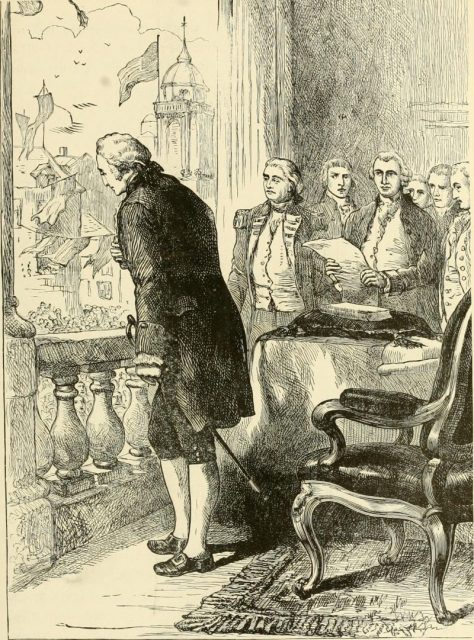
As Washington’s Secretary of State, Thomas Jefferson
told him, “North and South will hang together if they have you to hang
on.” Washington accepted that his country still needed him and was
unanimously elected to a second term in 1793. After serving eight years
in office, Washington finally returned to Mount Vernon in 1797.
In 1798, war between the United States and France
seemed very likely. President John Adams appointed the nation’s most
famous soldier to lead the American military effort in the event of a
French invasion. Washington agreed to serve and even traveled to
Philadelphia to undertake preparations for the new army. Although war
was ultimately avoided, Washington once again proved that whenever his
country needed him, he would abandon the comfort of his home and be
there for her.
Washington spent his final days at Mount Vernon before passing away of a throat infection on December 14, 1799 at the age of 67.
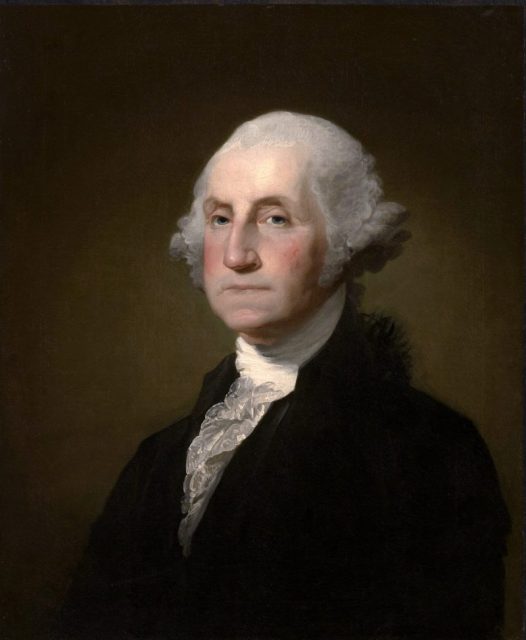
Although Washington loved his home and working on his
plantation more than anything, he understood that a man must never shy
away from his primary duty and dedicated 17 years of his life to serving
his country during the Revolutionary War, the Constitutional
Convention, and the Presidency, establishing precedents and laying the
groundwork for the United States to become a beacon of freedom.
George Washington’s life is a reminder that duty to country always comes first.
2. Never Give Up
George Washington considered the American triumph in
the Revolutionary war “little short of a standing miracle.” From 1775 to
1783, Washington led an army that was ill-clad, poorly supplied, rarely
if ever paid, and constantly plagued by scores of other issues against
the world’s premier war machine of its day.
There were times during the war when all seemed lost,
but no matter how many setbacks his army encountered, Washington refused
to give up. His courage was never in doubt; he constantly stood by his
men, and he fearlessly stared down every danger.
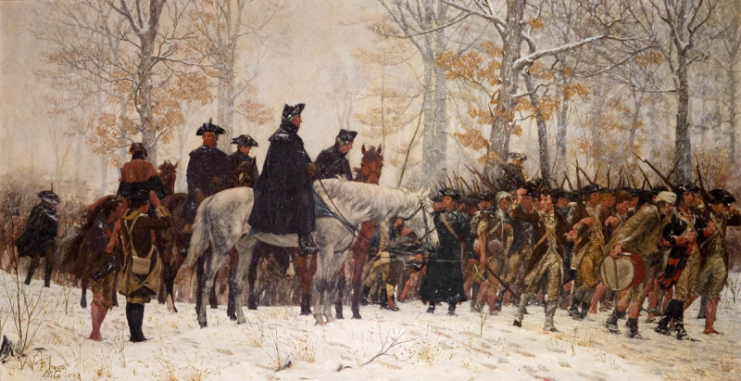
This iconic painting by William Trego was inspired
by a passage from Washington Irving’s Life of George Washington: “Sad
and dreary was the march to Valley Forge, uncheered by the recollection
of any recent triumph. . . Hungry and cold were the poor fellows who had
so long been keeping the field . . . provisions were scant, clothing
was worn out, and so badly were they off for shoes, that the footsteps
of many might be tracked in blood.”
As the Commander-in-Chief once reminded his soldiers,
“The fate of unborn millions will now depend, under God, on the courage
and conduct of this army.” Washington never forgot what was at stake in
the Revolutionary War and his devotion to the cause and to his soldiers
ultimately paid off. As Washington believed, “Perseverance and spirit
have done wonders in all ages.” General Washington witnessed those
wonders firsthand by exhibiting an unbreakable spirit and persevering to
secure America’s ultimate victory over Great Britain.
George Washington never gave up, and regardless of the obstacles that stand in our way, neither should we.
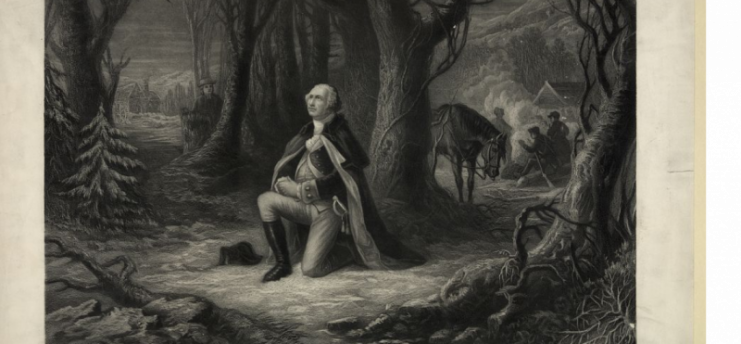
George Washington understood the miraculous of
America’s victory in the Revolutionary War better than anyone, and while
the Commander-in-Chief did everything in his power to secure his
nation’s independence, he always believed that the triumph would not
have been possible without God watching over him and his army. Often
using the word “Providence” to refer to God, Washington expressed this
belief on many occasions:
“If such talents as I possess have been called into
action by great events, and those events have terminated happily for our
country, the glory should be ascribed to the manifest interposition of
an overruling Providence.”
“I was but the humble Agent of favoring Heaven, whose
benign interference was so often manifested in our behalf, and to whom
the praise of victory alone is due.”
“The kind interposition of Providence which has been
so often manifested in the affairs of this country, must naturally lead
us to look up to that divine source for light and direction in this new
and untried Scene.”
As we go through life, we too must always remember that no matter what we are going through, God will always be with us.
4. With Great Power Comes Great Responsibility
In a world run by kings, George Washington would not
wear a crown. He wielded tremendous power as a general and president,
but Washington was intensely aware of the great trust his fellow
Americans placed in him and he never abused the power he was entrusted
with.
Washington received a letter during the Revolution
that slightly suggested he should assume the title of American Monarch.
The seriousness of Washington’s response said everything about his
character and integrity: “No occurrence in the course of the war has
given me more painful sensations than your information of there being
such ideas existing in the army…. I must view with abhorrence and
reprehend with severity” any idea that was “big with the greatest
mischiefs that can befall my country.” Washington was
truly incorruptible.
Perhaps the greatest act that demonstrated
Washington’s understanding of power and responsibility came when he
surrendered his military commission to congress on December 23, 1783.
As he stood before the gathered congressmen in the
statehouse at Annapolis, Maryland, the Commander-in-Chief declared,
“Having now finished the work assigned me, I retire from the great
theatre of Action-and bidding an Affectionate farewell to this August
body under whose orders I have so long acted, I here offer my
Commission, and take my leave of all the employments of public life.”
By surrendering his military commission to a grateful
Congress, Washington affirmed a principle he firmly believed in:
civilian control of the military.
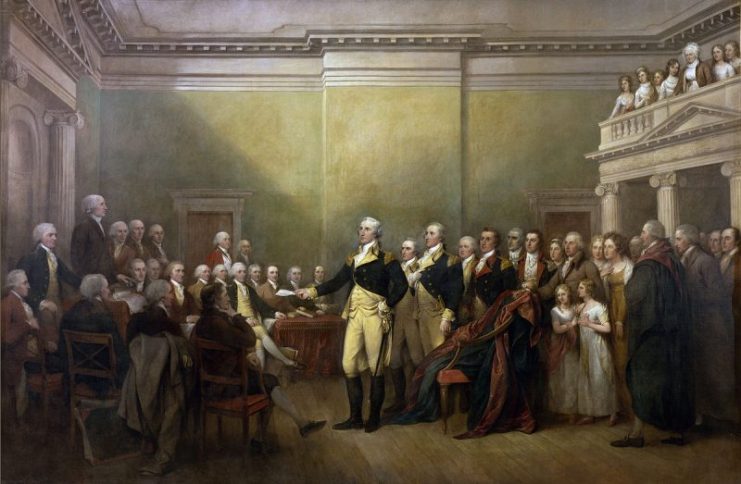
As history around the world has shown, some
revolutionary leaders in Washington’s position might have attempted to
seize political power. In fact, Washington had been forced to put down a
potential coup d’état in March 1783 when disgruntled army officers
threated to overthrow the civilian government over its failure to pay
their salaries or pensions.
Upon hearing that Washington intended to peacefully
surrender his commission and return home, Great Britain’s King George
III reportedly said, “If he does that, he will be the greatest man in
the world.” Washington did, and during his time on this earth, he
demonstrated how a true leader uses power responsibly.
Like Washington, we must also understand that with great power comes great responsibility.
5. Set an Example
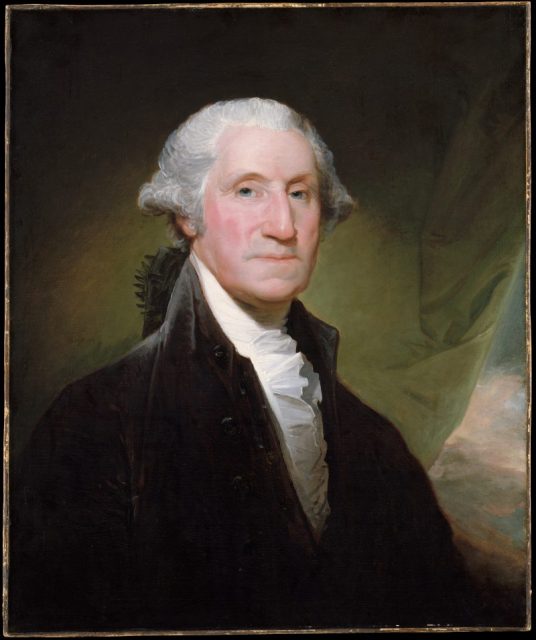
In everything that he did, George Washington always
set an example for others to follow. Regarding his position as the First
President of the United States, Washington wrote, “I walk on untrodden
ground. There is scarcely any part of my conduct which may not hereafter
be drawn into precedent.”
Washington understood that in a world where royalty
reigned supreme, it was up to him to prove that the republican model of
government could succeed. One of the most important ways of doing that
was to ensure the peaceful transition of power from one president to the
next. During Washington’s time there were no term limits, and while
many would have supported him in office until the day he died,
Washington knew that he had to establish a precedent for others to
follow.
Hence, at the end of his second term, Washington
stepped down as president, setting an example that lasted until
President Franklin D. Roosevelt won a third term in 1940, and ensuring
that succession would be determined by the ballot box. Today, the 22nd
Amendment to the U.S. Constitution ensures that no person can be elected
to the office of the President more than twice.
There will be people in our own lives who look up to
us for guidance, and like Washington, we must also understand the
importance of setting an example for those individuals to follow.

There is another portrait of him at the GW Masonic Memorial in Alexandria, VA, along with a number of family items.
ReplyDelete